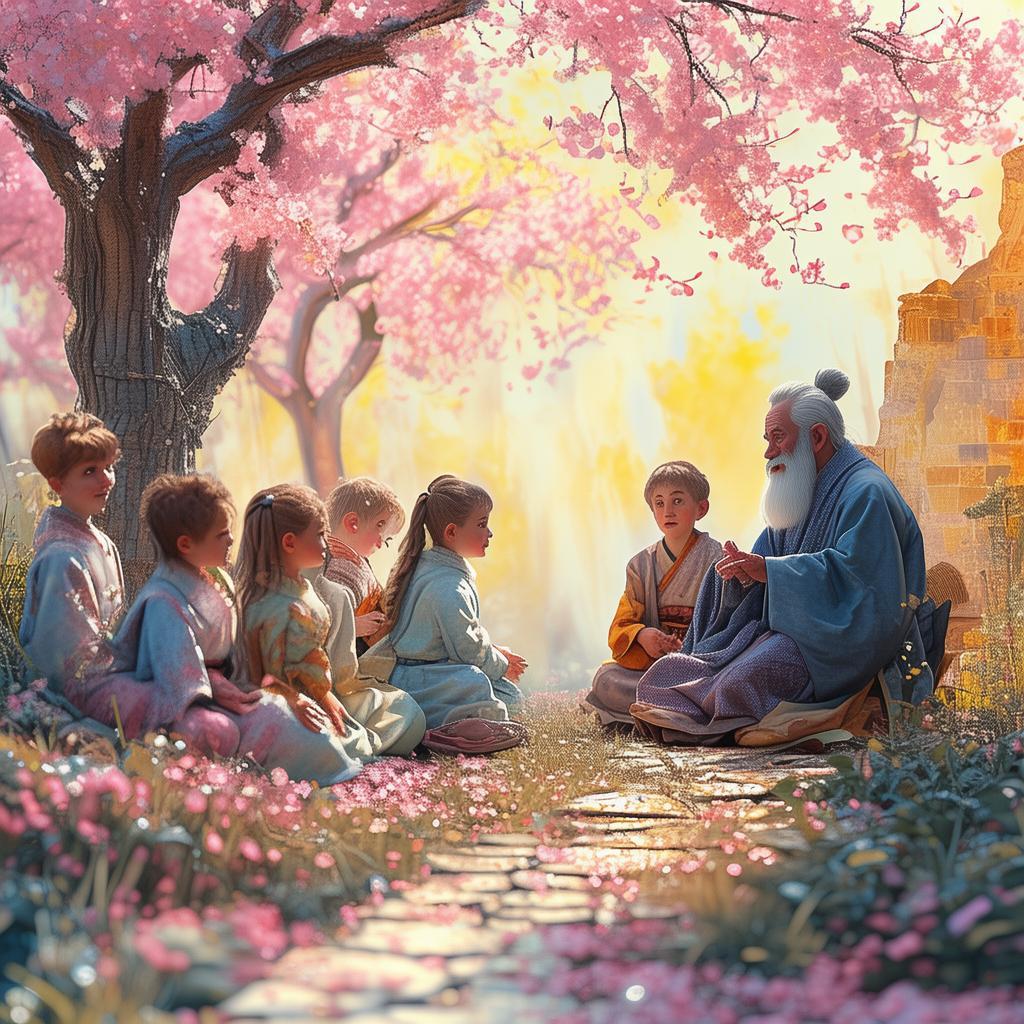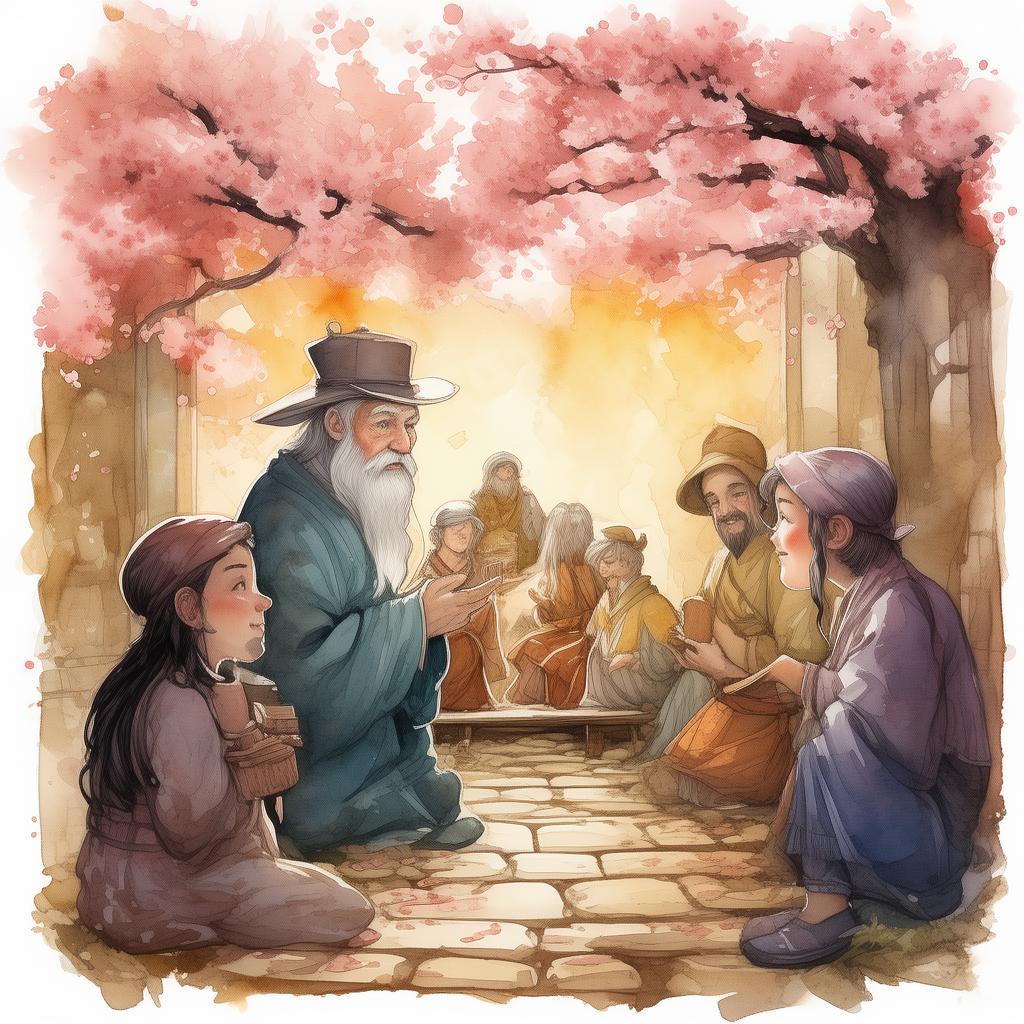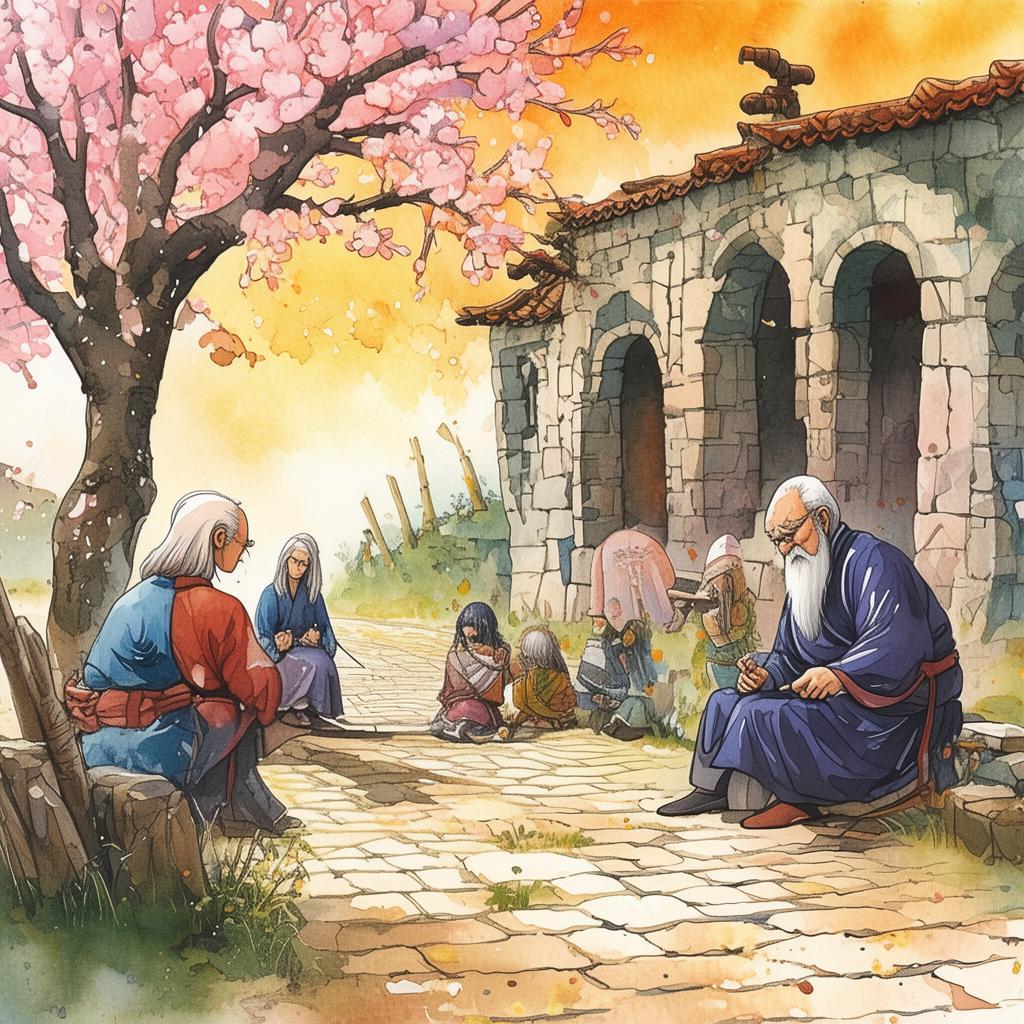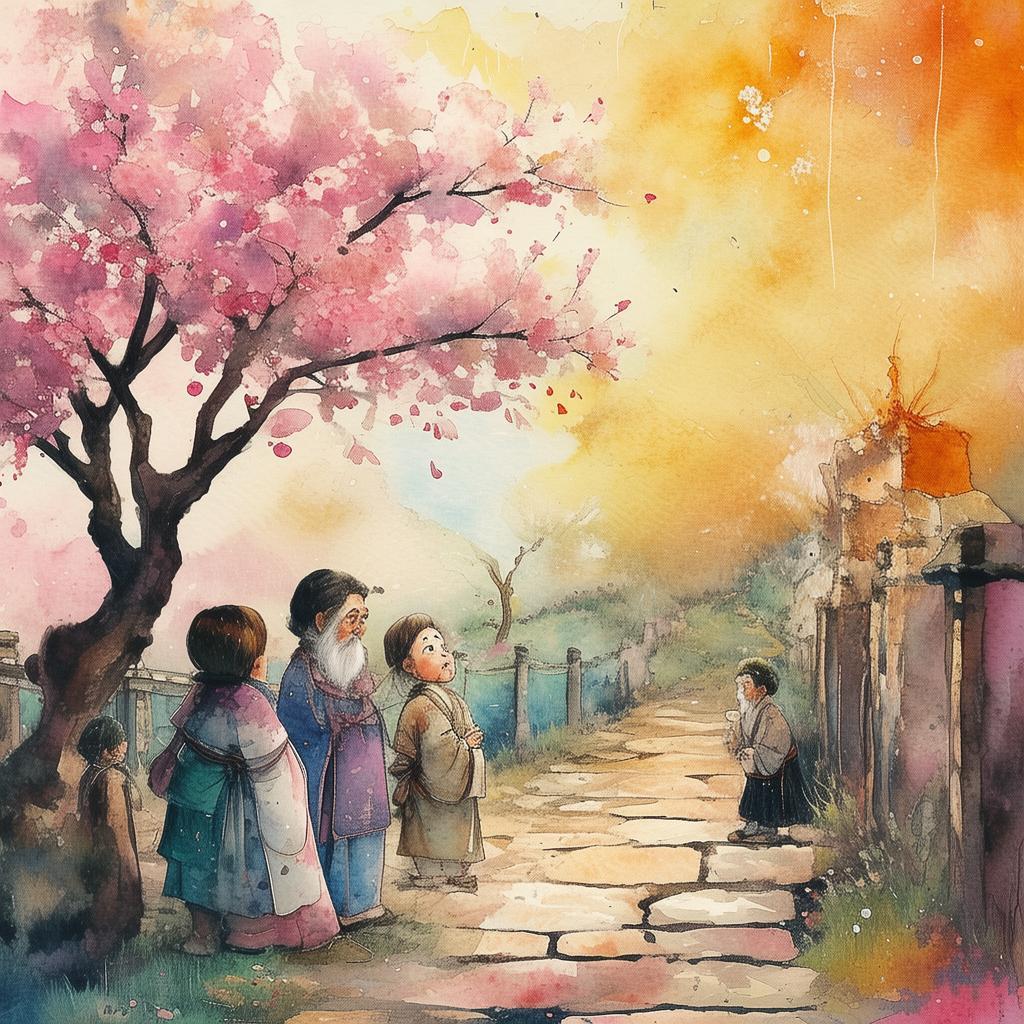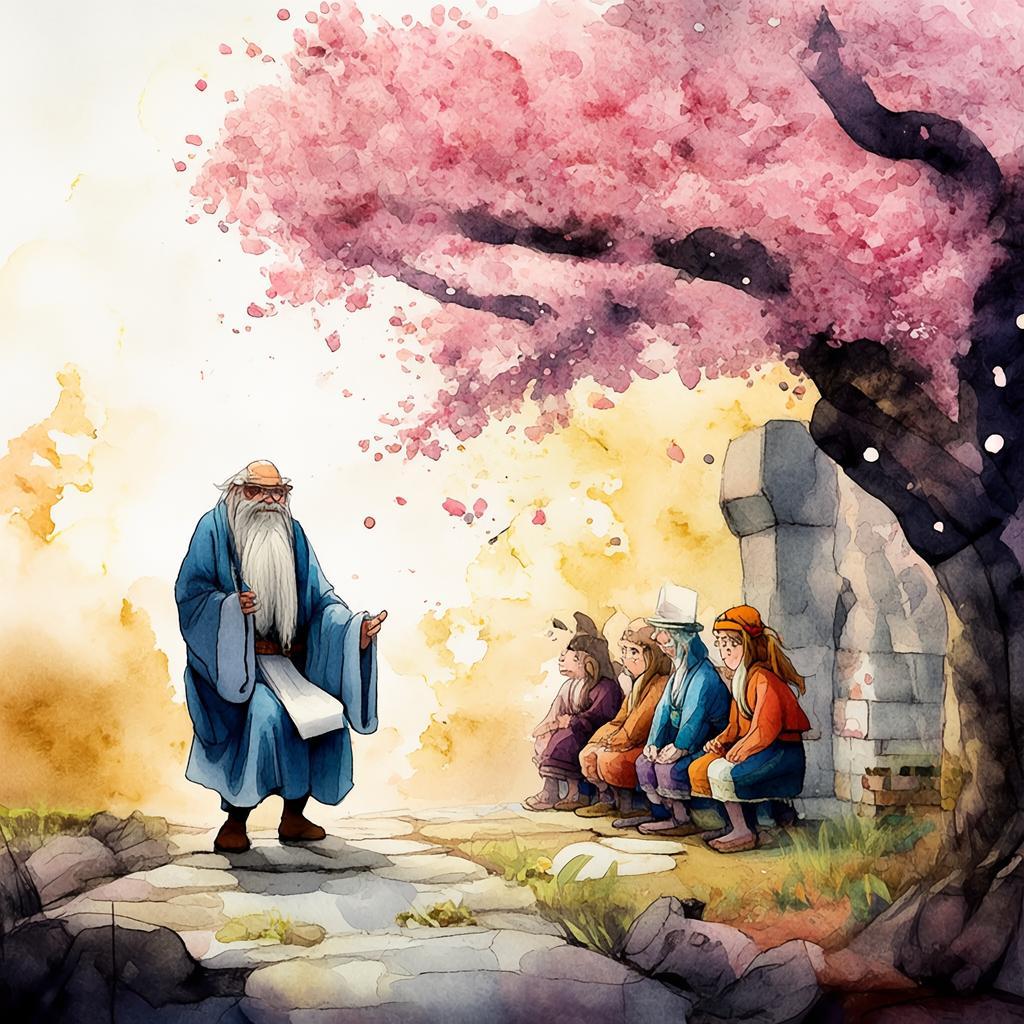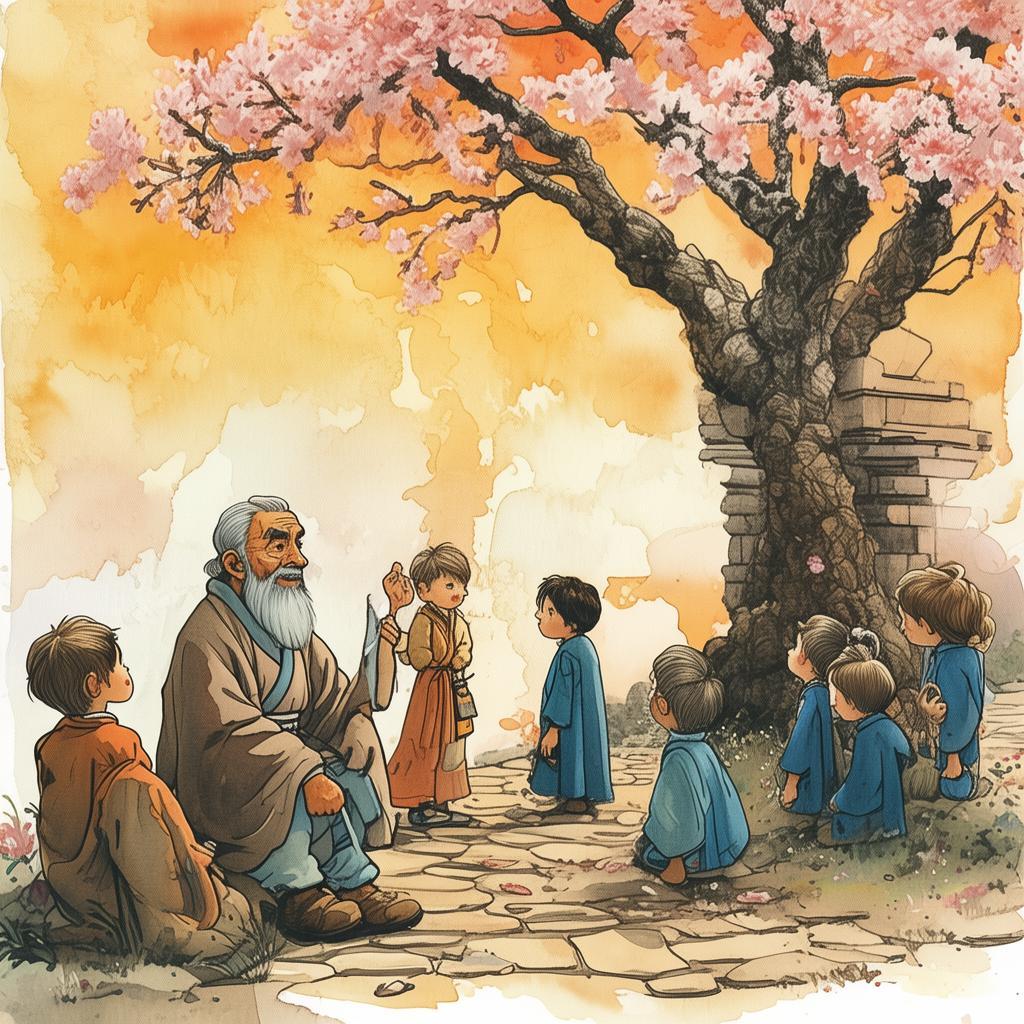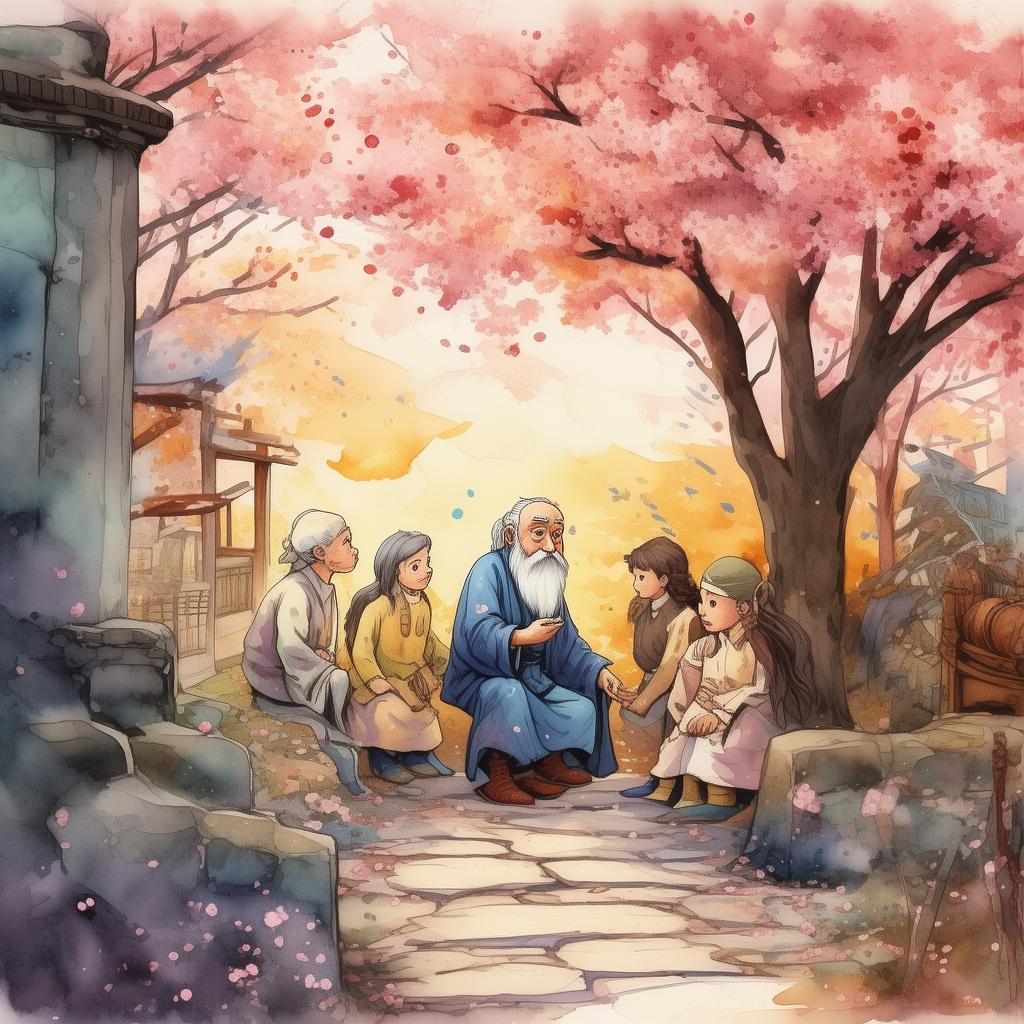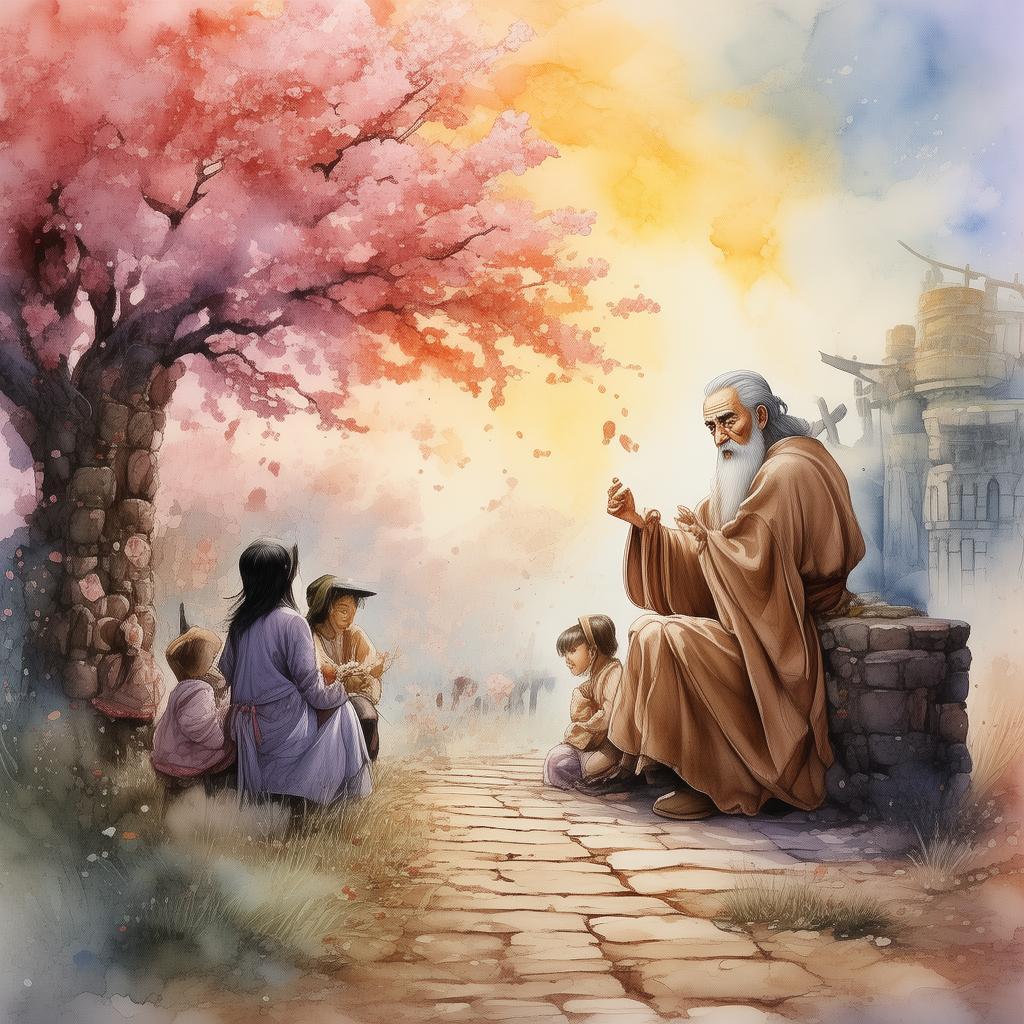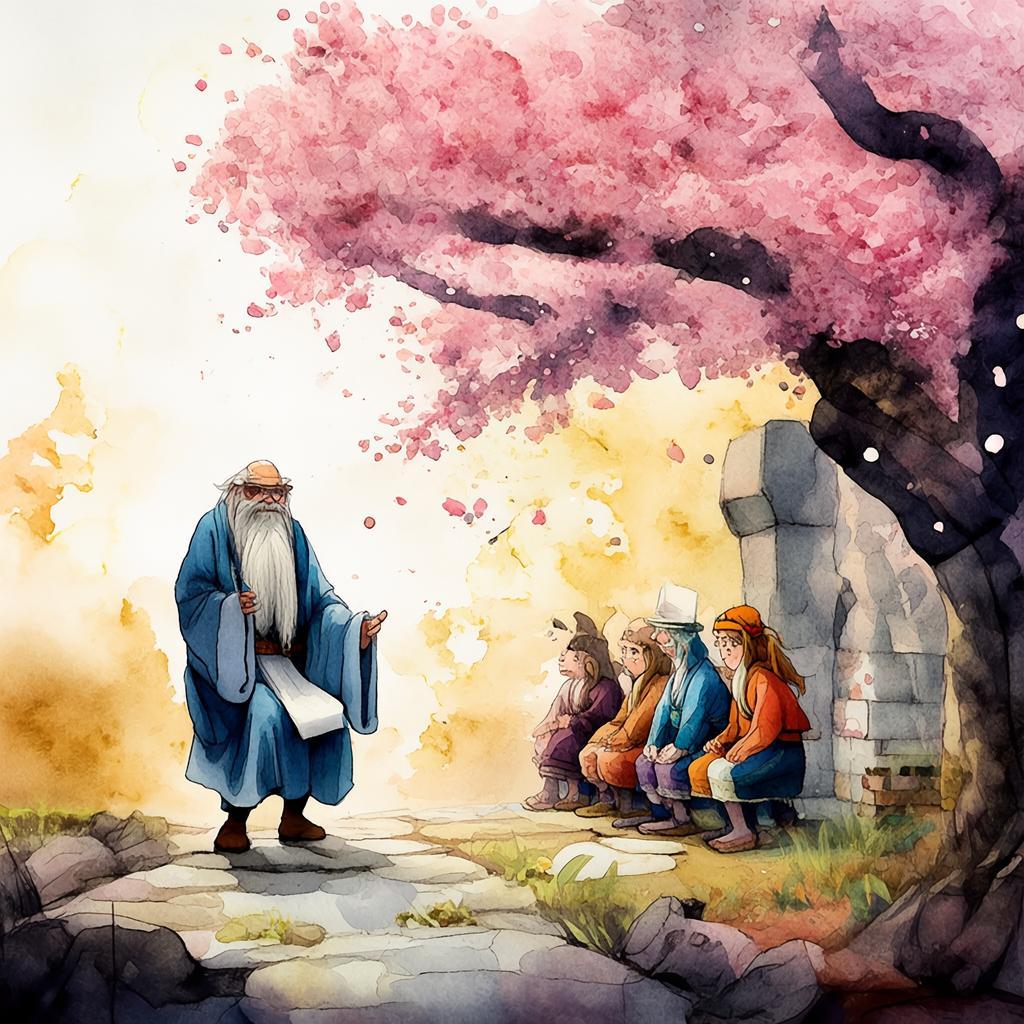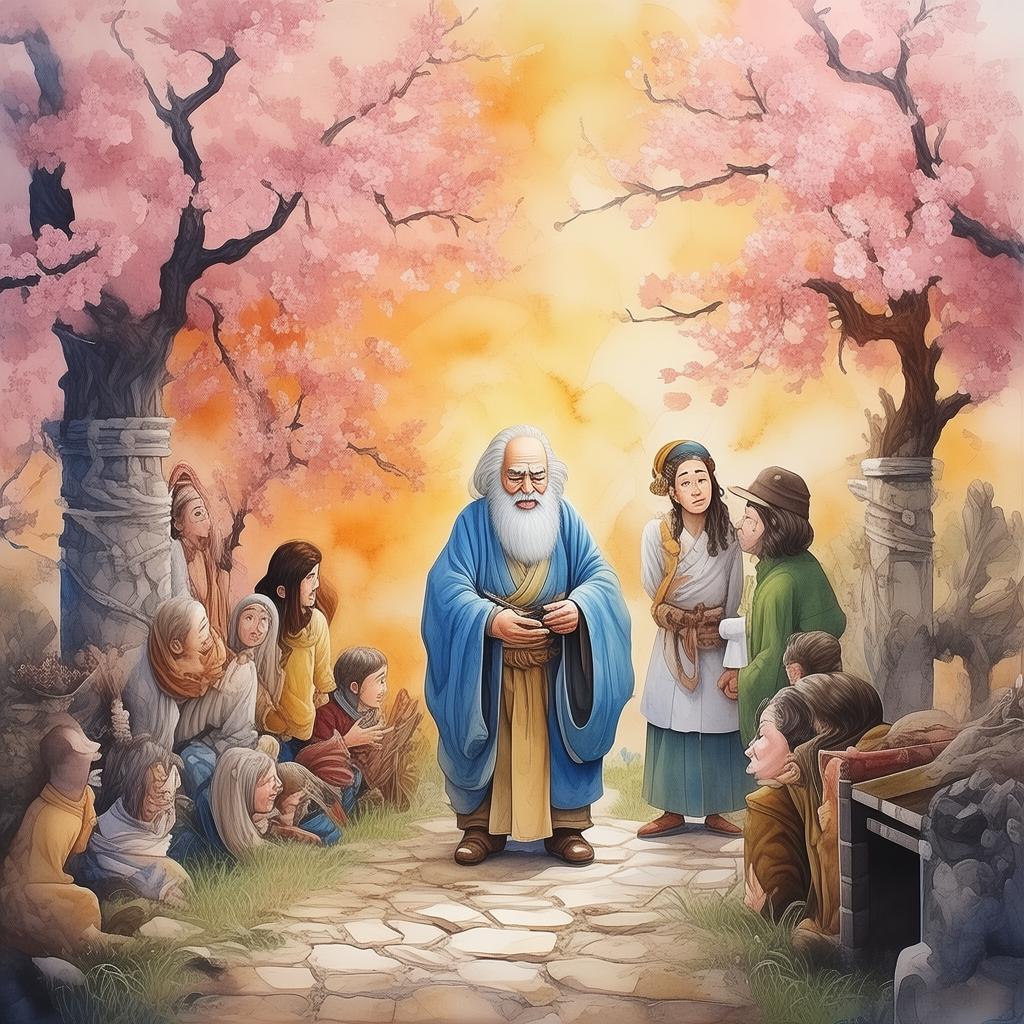The Virtual Renaissance: A Quest for Moral Clarity
In the year 2147, the world was a tapestry of advanced technology and virtual realities. Among the myriad of virtual worlds, there was one known as The Virtual Renaissance, a digital realm where people could experience the golden age of human history. The Virtual Renaissance was a place where one could learn from the past, make moral decisions, and become a better person. It was a sanctuary for those seeking a moral Renaissance.
Young Wei was an average citizen living in a bustling city filled with towering skyscrapers and sleek, autonomous vehicles. He had always been fascinated by the idea of The Virtual Renaissance, but he had never dared to explore it. That was until one fateful day when he received a mysterious invitation from an unknown source.
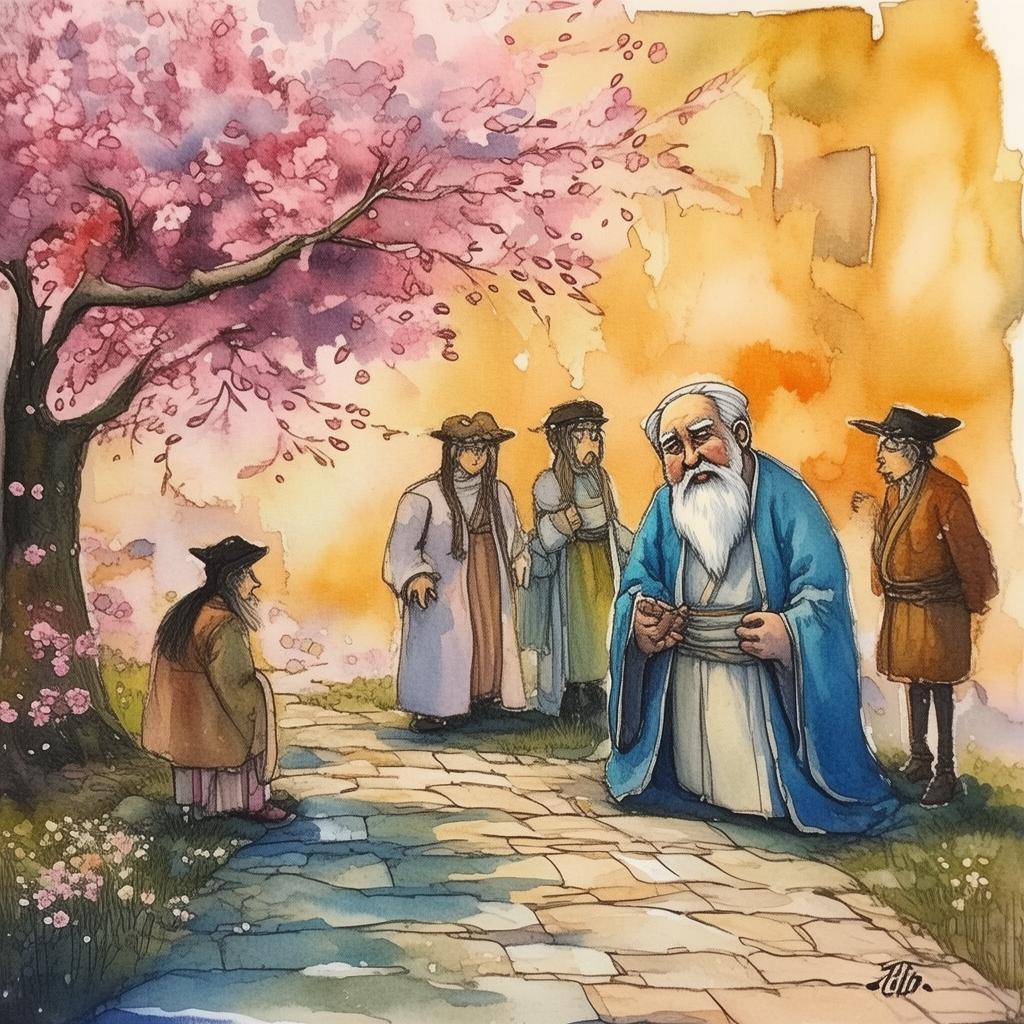
The invitation was simple yet intriguing: "Join The Virtual Renaissance and embark on a quest for moral clarity." Wei, driven by curiosity and a desire to better himself, decided to accept the invitation.
Upon entering The Virtual Renaissance, Wei found himself in a bustling medieval town, complete with cobblestone streets and stone buildings. The townspeople were dressed in period-appropriate attire, and the air was filled with the sounds of merchants hawking their wares and children playing. It was a perfect replication of the Renaissance period, down to the smallest detail.
Wei wandered through the town, marveling at the sights and sounds. He soon noticed a young woman standing by a fountain, her eyes fixed on a small, intricately carved stone. The woman, named Li, approached Wei and introduced herself.
"Hello, I'm Li. I've been here for a while. It's a fascinating place, but it also presents some difficult choices," she said with a thoughtful expression.
Li explained that the stone she was observing was a moral compass, a device designed to guide the townspeople through their ethical dilemmas. However, the compass was not always accurate, and it required the user to think critically and make informed decisions.
Intrigued, Wei decided to test the moral compass. He approached the device and was asked to make a decision: "Should the town prioritize the construction of a new library or the expansion of the local hospital?"
Wei hesitated, knowing that both options had their merits. He looked at Li, who seemed to be watching him intently. "What would you choose?" he asked.
Li smiled, "I would choose the hospital. While a library is essential for education, the hospital is crucial for the well-being of the community."
Wei nodded in agreement and made his choice. The moral compass responded with a glowing approval, and Wei felt a sense of accomplishment.
As Wei continued his journey through The Virtual Renaissance, he encountered various moral dilemmas, each presenting a different perspective. He met a merchant who was caught between honesty and profit, a knight who had to choose between loyalty to his king and the well-being of his people, and a painter who had to decide between artistic freedom and societal expectations.
With each decision, Wei learned more about himself and the world around him. He realized that moral clarity was not about following a set of rules but about understanding the consequences of one's actions and making choices that aligned with one's values.
One day, Wei met an elderly man named Master Chen, a wise sage who had lived through many moral challenges in his life. Master Chen noticed Wei's growing understanding and approached him with a question.
"Wei, have you found the true essence of moral clarity?"
Wei pondered for a moment before replying, "I think it's about recognizing the importance of empathy and understanding the impact of our choices on others."
Master Chen nodded, "You are on the right path. The Virtual Renaissance is not just a place to learn about the past; it is a place to prepare for the future. As technology advances, the moral challenges we face will grow more complex. It is up to you and your generation to navigate these challenges with wisdom and compassion."
With Master Chen's words echoing in his mind, Wei knew that his journey through The Virtual Renaissance had only just begun. He had to continue seeking moral clarity and apply it to the real world, where the decisions he made would have real consequences.
As Wei left The Virtual Renaissance, he felt a newfound sense of purpose. He knew that the moral compass within him was now equipped to guide him through life's complexities. And with that, he stepped back into the real world, ready to face the moral Renaissance that awaited him.
The Virtual Renaissance: A Quest for Moral Clarity was a journey that transformed Wei from an average citizen into a moral compass for himself and others. It was a tale of growth, understanding, and the importance of making ethical choices in a world where technology was rapidly evolving.
✨ Original Statement ✨
All articles published on this website (including but not limited to text, images, videos, and other content) are original or authorized for reposting and are protected by relevant laws. Without the explicit written permission of this website, no individual or organization may copy, modify, repost, or use the content for commercial purposes.
If you need to quote or cooperate, please contact this site for authorization. We reserve the right to pursue legal responsibility for any unauthorized use.
Hereby declared.
